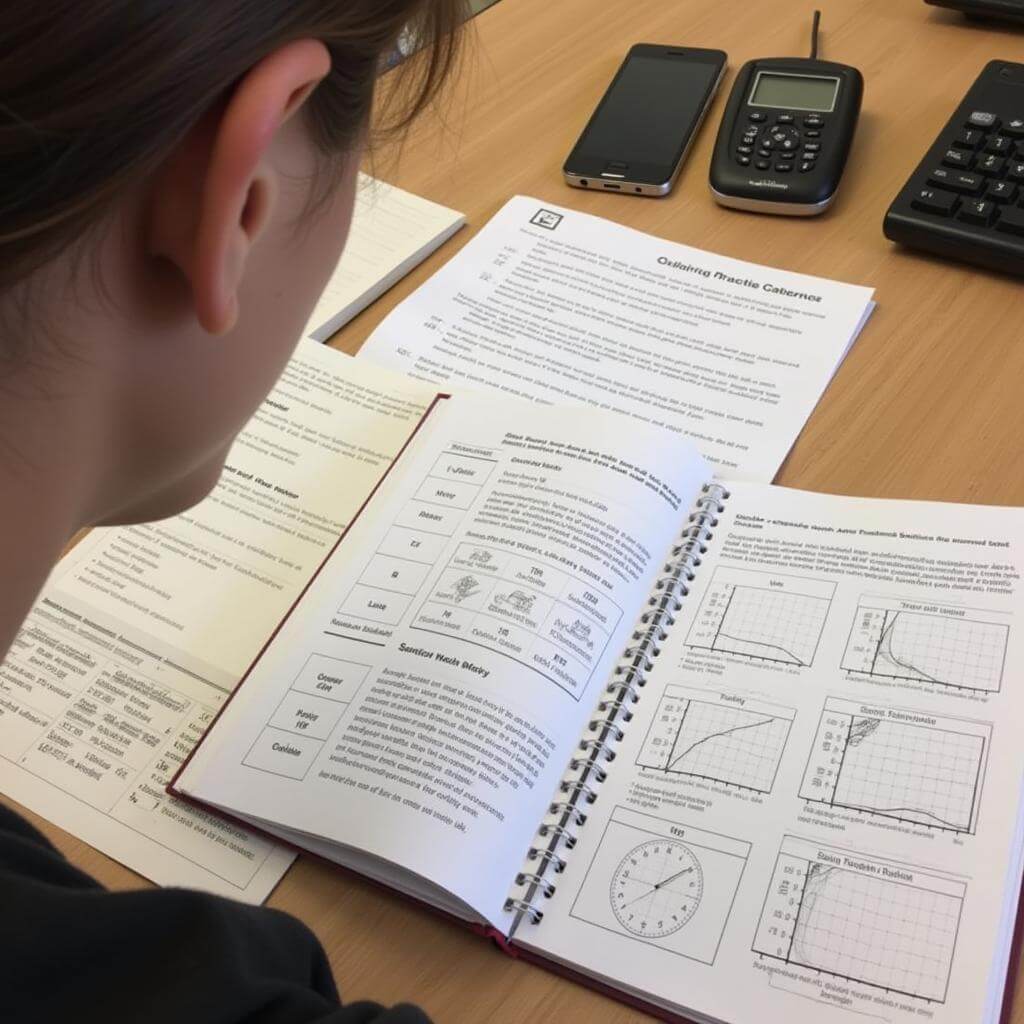IELTS success hinges on both knowledge and speed. This article explores effective strategies for improving your speed with IELTS practice tests, a crucial aspect of exam preparation. By honing your time management skills and familiarizing yourself with the test format, you’ll be well-equipped to tackle the real exam with confidence.
The Importance of Speed in IELTS
Speed is a critical factor in IELTS performance. With strict time limits for each section, candidates must balance accuracy and pace to achieve their desired scores. Practice tests play a vital role in developing this skill.
Why Speed Matters in IELTS
- Time constraints: Each section has a specific time limit.
- Question volume: Numerous questions need to be answered within the given time.
- Stress management: Improved speed reduces exam anxiety.
- Confidence boost: Faster completion leads to increased self-assurance.
Dr. Emma Thompson, a renowned IELTS expert, emphasizes: “Speed in IELTS isn’t about rushing. It’s about efficient time management and familiarity with the test structure.”
Strategies for Improving Speed with Practice Tests
1. Familiarize Yourself with Test Formats
Before diving into timed practice, ensure you’re well-acquainted with each section’s format. This knowledge allows you to navigate questions more efficiently.
- Review sample questions for each section
- Understand question types and their requirements
- Practice identifying key information quickly
2. Set Realistic Time Goals
Start by timing yourself without restrictions, then gradually reduce your time as you improve.
- Begin with untimed practice to gauge your natural pace
- Set incremental time goals for each section
- Aim to complete tasks slightly faster than the actual exam time
3. Develop a Personal Answering Strategy
Create a systematic approach to tackle questions efficiently.
- Skim passages before reading in detail
- Underline or highlight key information
- Practice answering easy questions first, then return to challenging ones
4. Regular Timed Practice
Consistency is key when improving speed. Incorporate timed practice into your study routine.
- Aim for at least one timed practice session per week
- Alternate between full tests and individual section practice
- Analyze your performance after each session to identify areas for improvement
Dr. Thompson advises: “Regular timed practice not only improves speed but also builds the mental stamina needed for the actual exam.”
5. Enhance Reading Speed
For the reading section, focus on improving your overall reading speed.
- Practice skimming and scanning techniques
- Improve comprehension of longer passages
- Use finger or pen tracking to maintain focus and increase speed
6. Develop Listening Strategies
In the listening section, quick note-taking and prediction skills are crucial.
- Practice active listening with various accents
- Develop shorthand for common words and phrases
- Improve listening skills without practice tests
7. Refine Writing Techniques
For writing tasks, focus on planning and efficient execution.
- Practice brainstorming and outlining within 2-3 minutes
- Use templates for common essay structures
- Time each paragraph to ensure balanced content
8. Enhance Speaking Fluency
While the speaking test isn’t timed like other sections, fluency is crucial.
- Practice speaking on various topics with a timer
- Work on pronunciation for difficult sounds
- Implement fluency practice tips
Analyzing Your Performance
After each practice test, conduct a thorough analysis to identify areas for improvement.
- Review questions you struggled with or didn’t complete
- Identify patterns in time-consuming questions
- Adjust your strategy based on your findings
Dr. Thompson notes: “Self-analysis is crucial. Understanding where you lose time is the first step to improving your speed.”

Common Pitfalls to Avoid
Be aware of these common mistakes that can hinder your speed improvement:
- Obsessing over difficult questions
- Neglecting to practice all sections equally
- Focusing solely on speed at the expense of accuracy
- Failing to simulate real exam conditions during practice
Conclusion
Improving speed with IELTS practice tests is a gradual process that requires dedication and strategic planning. By implementing these techniques and consistently practicing under timed conditions, you’ll develop the skills necessary to navigate the IELTS exam efficiently. Remember, the goal is not just to finish quickly, but to achieve a balance between speed and accuracy that allows you to showcase your true language abilities.
FAQs
-
How many practice tests should I take before the real IELTS exam?
Aim for at least 5-7 full practice tests, spaced out over your preparation period. -
Is it better to focus on speed or accuracy in IELTS?
Balance is key. Start by ensuring accuracy, then gradually work on improving your speed. -
How can I improve my time management in the IELTS reading section?
Practice skimming and scanning techniques, and allocate specific time limits for each passage. -
What should I do if I can’t finish a section within the time limit during practice?
Analyze where you’re spending too much time and adjust your strategy accordingly. Gradually work on increasing your pace. -
Are there any specific time management techniques for the IELTS writing section?
Yes, allocate time for planning (2-3 minutes), writing (35-37 minutes), and reviewing (3-5 minutes) for each task. -
How can I simulate real exam conditions during practice tests?
Use official IELTS practice materials, adhere strictly to time limits, and create a quiet, distraction-free environment.